The Strongest Army in the World: Your Immune System
Health Related Vocabulary
and Grammar Practice
Let's pretend that the year is 2015. You wake up in the morning feeling under the weather. "Under the weather" means "a little ill and not as usual". Maybe you have a cold. A "cold" is a common illness that blocks your nose and makes you cough or sneeze.
Do you know that is a good sign? It means you are protected by your immune system!
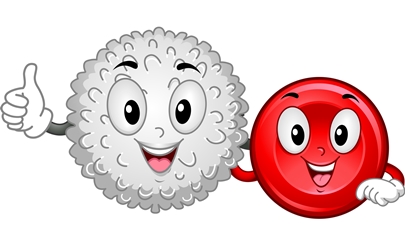
Wait... why is it good? And what is the immune system?
"Immune" means protected from poison or disease. It comes from the Latin word immunis, meaning "free".
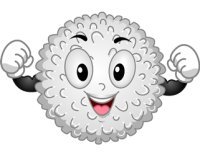
"System" means a group of things that work together. In the body, a system is all the organs and cells that work together to achieve something.
So the immune system is the system in your body that works to protect you from poisons and disease.
First, let's take a look at poisons. In a lifetime, your body encounters many types of poisons.
A poison is a substance that can make the body ill if you eat, drink, breathe, or sense it. Some poisons are stronger than others.
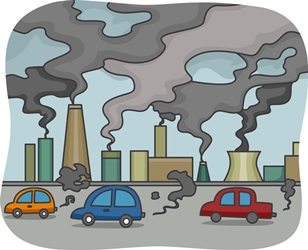
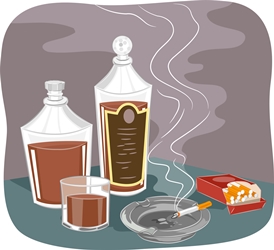
Examples of poisons:
Toxic mushrooms, harsh cleaning products, pesticides (chemicals that are sprayed on the food we grow), x-rays (radiation that passes through objects and allows us to see the inside of them), CO (a gas emitted by cars), mercury (a silver metal that kills nerve cells). These are just a few examples.
This may sound like a lot, but don't worry! A strong immune system can handle a great deal! It has been doing so for millions and millions of years. And of course we should help it by doing our best not to consume poisons.
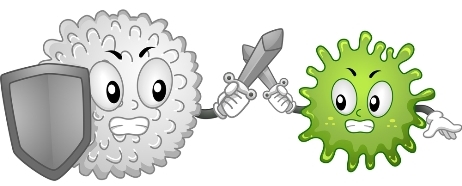
Now, we said that the immune system is the system in your body that works to protect you from poisons and disease.
We talked about poisons, but what about disease?
The body is made of cells. Quite a lot of cells, actually. Scientists estimate you have around 30 trillion cells in the body. That is 30,000,000,000,000!
But it does not end there. A healthy person also has an estimated amount of 100 trillion microorganisms (tiny living things that live in or on the body). That is 100,000,000,000,000! (Yes, you have more microorganisms in and on your body than human cells!)
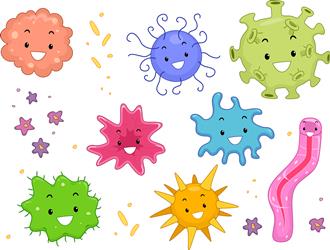
One important group of microorganisms is the bacteria.
"Bacteria" is the plural form of bacterium. (1 bacterium / many bacteria)
Bacteria are the smallest forms of life. Bacteria exist in large numbers in air, water and ground. They also live in animals and plants.
Bacteria are responsible for eating tissues of plants and animals that are no longer alive (a tissue is a collection of cells). This process is called "decay". So when something is dead, it is the job of bacteria to break it down. Bacteria are drawn to dead cells and break them down.
Decay is a highly important process, since it allows the recycling of materials. For example, if a tree dies, different bacteria help to break down the tree's tissues into their basic materials. As a result, new plants can use them and grow.
Bacteria are small, but play an important role in human health. Bacteria help digestion and boost the immune system! Studies have found that animals raised in sterile (completely free from bacteria) environments have poorly developed immune systems.
In addition to bacteria, our bodies are exposed to viruses. A virus is a tiny package of genetic material. It is not considered to be alive. It cannot multiply or act by itself. The only thing it can do is enter a cell, and reach that cell's genetic material. Then the cell makes copies of the genetic material.
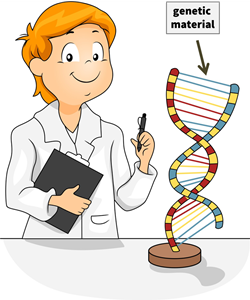
Viruses exist almost everywhere on earth. In fact, they are considered the most abundant (existing in large quantities) creature on the planet. We eat, drink, breathe, and take in millions of viruses every second! Some scientists even believe viruses helped create the very first cells on Earth.
Most of the time viruses have no visible harmful effect on the body. (Think of the millions of viruses you have taken in just since you began reading this lesson. How did they affect you?) Scientists even believe some viruses play a role in improving our immune system. But other times, viruses can trigger our immune system to respond.
The important thing to remember is that the body works constantly to maintain a good balance of substances, cells, bacteria, etc. This balance makes you feel energetic and healthy.
When this balance is disturbed, you feel sick and less energetic. If the imbalance continues, you can feel worse and worse. You may get a disease. Your immune system can help you restore the right balance!

Let's take a look at an example. What happens when poisons enter the body?
Air pollution is made of small particles and is harmful to the body (a type of "poison"). When pollution particles enter the body, the immune system correctly recognizes them as foreign, and works to break them down, so that they can be safely removed from the body.
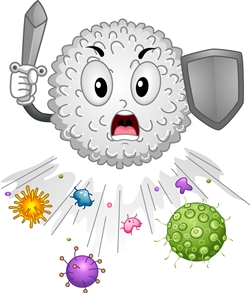
The immune system also breaks down the body cells that got damaged by the pollution and no longer function properly. By doing so, the immune system keeps the body safe and running.
Let's take a look at another example. What happens when there is an injury, and the body is suddenly "open" to many microorganisms and foreign substances coming inside?
In the case of a small cut, for example, there is an opening in the skin. First, the body temporarily seals the opening. This usually takes a few minutes for a small cut. Then, the immune system starts its work. It correctly recognizes any foreign invaders (dirt, misplaced microorganisms, etc.), and works to break them down, so that they can be safely removed from the body. The immune system also breaks down the body cells that got damaged and no longer function properly.
In order to do all this, and keep the body well, the immune system uses an important process called inflammation. It is so important that without it, no cut or injury can heal!
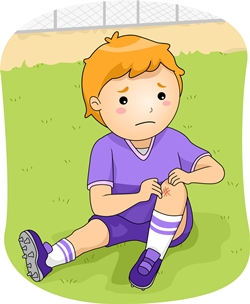
Inflammation
Every time there is some damage to body cells, the body starts the inflammation process. Its purpose is to remove the cause of the problem and also remove the damaged body cells. After that, the body can begin to heal the area.
This is the process of inflammation:
- The immune system causes more blood to flow to the affected
body part. This makes the area warmer, a bit swollen, and red.
The nerves feel it, and make you feel some pain. The pain helps
you know this body part is now busy healing, and that you should
give it some rest. The increased blood flow brings important
help and speeds up recovery.
- Your immune system may also raise your body temperature. This is called fever. Fever helps the immune system work faster, while slowing down and killing foreign invaders.
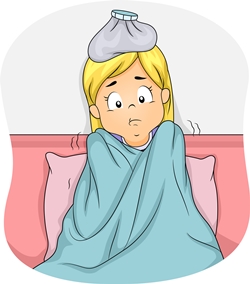
Now the immune system can get to work! White blood cells are an important part of our immune system. They are usually in our bloodstream, but can go wherever the body needs them. And in times of need, they multiply and multiply to meet the demand!
Now, you may notice we explained that the immune system breaks down foreign invaders and damaged body cells, but how does the body remove them? They shouldn't stay inside!
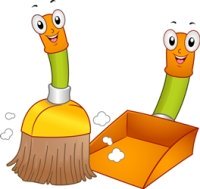
This "cleaning up" is done in several ways:
- A fluid that contains the "trash" may come out (for example,
from a wound), or even inside a little zit (a raised red spot on
the skin). This fluid helps clean the area.
- More "trash" can be removed using a special network of tubes
that mainly serve the immune system. The liquid in these tubes
is white and not red, and is called "lymph" (it
comes from the French word lymphe, meaning "water").
(This cleaning fluid is not pushed by the heart, so its upward movement highly depends on the muscle motions. That is one of the reasons why it is so important the body moves, exercises, etc. It helps collect and remove "the trash"!)
- Other methods the body uses to "take out the trash" are cough, runny nose, etc. (It gets waste OUT of the body.)
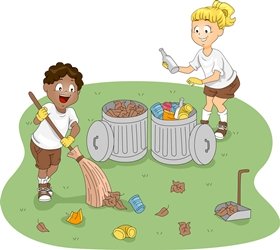
Once the area is cleaned and healed, inflammation may stop, and the number of white blood cells returns to normal.
Isn't the immune system a beautiful thing, working to keep the body well and safe at all times?
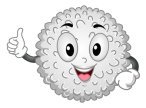

How We Can Help Our Immune System to Do Its Job
Imagine you need to print 20,000 new books, but you run out of paper and ink. Problematic, isn't it?
Or maybe you give your printing worker a task to babysit 200 kids on the job, while he is supposed to be busy printing. Would that slow him down or even stop him from working?
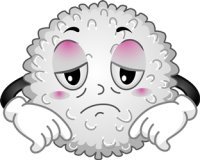
The same is true with our immune system. You are responsible for your body, and your life choices can obviously make a difference.
For example, the following things add burden to your immune system, and therefore make it less effective:
Chemicals, sugar, white flour, trans fats (fats ruined by heating), junk food, lack of movement and exercise, lack of sleep, food with little nutritional value, missing nutrients (such as vitamin C, D and zinc), not enough sunlight exposure, polluted air, and even too much stress or loneliness.
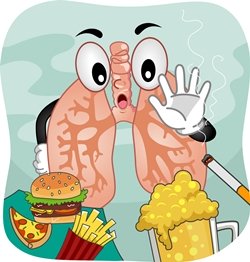
And here are some examples of things that help your immune system, and therefore make it more effective:
Vegetables, good unheated fats, exercise, a good night's sleep, food with high nutritional value, important nutrients such as vitamin C, D and zinc, sunlight exposure (during the safe hours), clean air, going to the beach or forest, laughter, good friends, and a sense of purpose.


You should also consider consulting your care provider, since some medications suppress the immune system. For example, medications against fever, which lower your body temperature, may interfere with the work your immune system is trying to do. So it is a good idea to stay informed about any side effects of medications.
Some types of drugs and medications that may weaken the immune system: fever-reducing medications, pain killers, psychiatric drugs, street drugs (such as marijuana), and allergy medications. It is worth mentioning that alcohol, smoking, and too much caffeine (coffee) weaken the immune system as well.
Antibiotics and disinfection have a side effect of killing helpful bacteria. So after taking antibiotics, or using disinfection, it may help to take probiotics (supplementation of good bacteria).
So to sum it up: how does it sound to you to sleep well, eat well, work hard, exercise, spend time in nature, have good friends and laugh a lot? Do you think your immune system would appreciate it and pay you back with energy and health?
Here is a short video that shows exactly how the immune system keeps us strong and healthy. Subtitles for many languages are available, so you can turn subtitles ON and watch it in your own language:
How Does Your Immune System Work?
An interesting question: why do some people get sick, while others
remain healthy and well?
For example, let's have a look at the common flu. Why do some people get really sick, when others feel absolutely no symptoms?
To answer this question, in 2011, University of Michigan researchers did an interesting study: They infected healthy people with the flu virus. Half of the study participants got sick. But the other half did not notice a thing!
One of the scientists explained the results: "There is a behind-the-scenes active immune response even when you don't get sick." He said the differences in the response had to do with antioxidants. (An antioxidant is a substance such as vitamin C or E that neutralizes dangerous molecules in your body.)
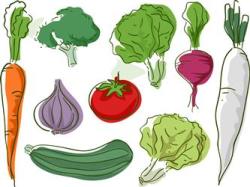
He also mentioned that eating fresh fruits and vegetables to load up on antioxidants could be helpful. He explained that the antioxidants may have protected the people that did not get sick. The scientists of this study cannot guarantee you anything, but why not eat healthy and help your immune system, right? :-)
This article is meant to teach English vocabulary regarding health and practice grammar. It is not meant as medical advice. If you have questions regarding specific medical or healthcare matters, you should consult your healthcare provider.
You are welcome to use this lesson by yourself, or with your
students. It is completely
free of charge to download.
You can read it online, download
the PDF file, use it by yourself or with your students. You can
also check the answers using the answer key.
All we ask in return, is that if you find this resource useful,
please link to this page and share it with your students,
colleagues, and anyone else who may benefit from it. You can link
to this page from your website, blog, Facebook, Twitter, LinkedIn,
etc.
And now, practice:
Exercises
Vocabulary and Comprehension Questions
- What is the plural form of bacterium?
- bacteriums
- bacteria
- bacterias
- bacteriums
- The immune system is the system in the body
that…
- kills every virus and bacterium in the body
- protects you from poisons and disease
- helps you digest your food
- kills every virus and bacterium in the body
- Which of the following would not be considered a poison
by the immune system?
- air pollution
- x-rays
- lettuce
- air pollution
- What does disease basically mean?
- having any viruses or bacteria in the body
- a lack of balance of substances, cells, bacteria, etc.
- a good balance of substances, cells, bacteria, etc.
- having any viruses or bacteria in the body
- What is a virus?
- a tiny living cell
- a non-living package of genetic material
- a rare tiny creature
- a tiny living cell
- What does lymph mean?
- a white fluid that flows in special body tubes, used by
the immune system for removing waste
- water that French people drink in the US
- blood that is very pale
- a white fluid that flows in special body tubes, used by
the immune system for removing waste
- What happens when poisons or unwanted invaders enter the body?
- the immune system breaks them down, so that they can be
safely removed from the body
- the body "takes out the trash" using the lymph, cough, a
runny nose, zits with fluid inside, etc.
- all the above
- the immune system breaks them down, so that they can be
safely removed from the body
- Which of the following is not part of the helpful inflammation
process?
- pain
- swelling
- bleeding
- pain
- What is decay and how is it related to
bacteria?
- Decay is the breaking down of dead cells. It is the job of
the bacteria.
- Decay is the breaking down of healthy cells. It is the job
of the bacteria.
- Decay is the preservation of dead cells. It is the job of
the bacteria to make sure dead cells will stay forever.
- Decay is the breaking down of dead cells. It is the job of
the bacteria.
- What is air pollution?
- heavy rain or snow
- bacteria and viruses in the air
- substances that make air dirty and can be toxic
- heavy rain or snow
- What is an antioxidant?
- a dangerous molecule in the body
- a substance such as vitamin C or E that neutralizes
dangerous molecules in the body
- fresh fruits and vegetables
- a dangerous molecule in the body
- Which of the following can weaken your immune system?
- sun exposure during the safe hours
- sugar
- laughter
- sun exposure during the safe hours
Grammar Questions
Complete the following sentences using the right form of
the word.
- You wake up in the morning ______________ (feel | felt |
feeling) under the weather.
- A strong immune system can handle ______________ (a | the |
of) great deal.
- You have ______________ (most | more | many) microorganisms in
and on your body than human cells.
- Studies ______________ (found | have found | has found) that
animals raised in sterile, bacteria-free environments have
poorly developed immune systems.
- Viruses exist almost everywhere ______________ (in | on | at)
earth.
- The immune system breaks down ______________ (damage | damaged
| have damaged) body cells that no longer function properly.
- Isn't the immune system a beautiful thing, ______________
(worked | to work | working) to keep the body well and safe at
all times?
- You are responsible ______________ (for | on | at) your body,
and your life choices can make a difference.
Get Updates, Special Offers, and English Resources
Download your FREE GIFT (the first two chapters of
English Short Stories Book and Workbook)
as soon as you join!

By submitting your email, you consent to receiving updates and newsletters from us and to the sharing of your personal data with third parties for the purposes of sending you communications. We will not spam you. You can unsubscribe at any time. For more information, please see our privacy policy.




